Navigating the world of international shipping can be a daunting task, especially when it comes to shipping from China to Uruguay. With diverse shipping methods available, understanding the intricacies of air freight and sea freight is essential for making informed decisions that can impact your bottom line. This guide provides insights into various shipping options, average costs, transit times, and critical factors that influence your shipping experience. Whether you’re a seasoned importer or new to global trade, our comprehensive breakdown will help you find the most cost-effective and efficient shipping solutions tailored for your business needs.
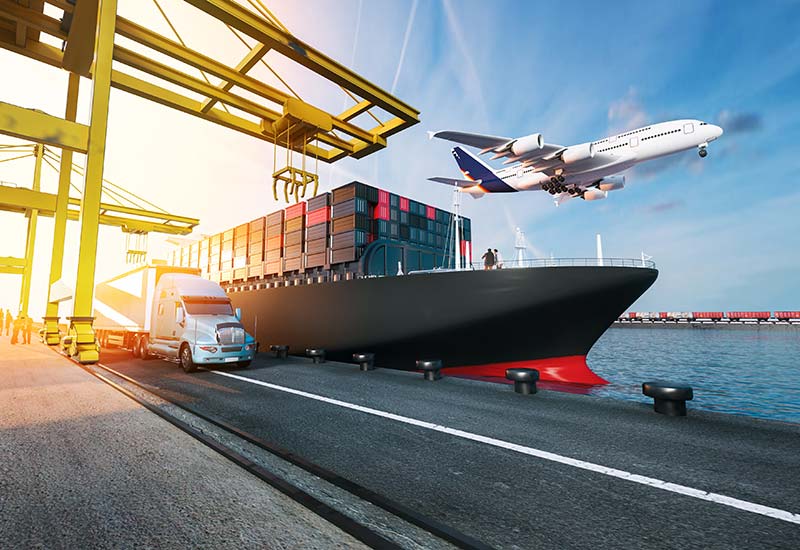
Understanding Shipping Options from China to Uruguay
As a prominent player in the global trade landscape, Uruguay has become a significant destination for imports from China. For businesses considering importing goods into Uruguay, understanding the available shipping options is crucial for selecting the most effective strategy. The two primary shipping methods are air freight and sea freight, each with its unique advantages and challenges.
Overview of Shipping Methods: Air vs. Sea Freight
When deciding between air freight and sea freight, several factors should be considered, including speed, cost, and the type of goods being transported.
| Shipping Method | Speed | Cost | Ideal For |
|---|---|---|---|
| Air Freight | Fast (1-7 days) | Higher costs | High-value, low-volume goods (electronics, textiles) |
| Sea Freight | Slower (2-6 weeks) | Lower costs | Bulk goods, heavy machinery, and non-time-sensitive items |
-
Air Freight: This method is known for its speed, making it an ideal choice for time-sensitive items. With transit times ranging from 1 to 7 days, air freight provides a quick solution for urgent shipments. However, the higher costs associated with air transport can be a deterrent for businesses looking to minimize expenses.
-
Sea Freight: Offering a more economical option, sea freight is typically used for bulk shipments that do not require immediate delivery. With transit times between 2 to 6 weeks, this method is suitable for heavy and non-perishable goods. Although slower, sea freight allows for larger cargo volumes, making it a favorable choice for many importers.
Key Factors Influencing Shipping Costs
Shipping costs are determined by multiple factors, including:
-
Weight and Volume: Heavier and larger shipments naturally incur higher shipping costs. Freight forwarders often calculate the freight charges based on the dimensional weight, which considers both the size and weight of the packaging.
-
Shipping Method: As mentioned, the choice between air freight and sea freight significantly influences pricing. Air freight generally incurs higher costs due to speed, while sea freight offers more cost-effective solutions for bulk shipments.
-
Customs Duties and Taxes: Import duties and taxes imposed by Uruguayan customs can impact overall shipping expenses. Understanding the tariff classifications for your goods is crucial for accurate cost estimation.
-
Fuel Costs: Fluctuations in fuel prices can directly affect shipping rates, particularly in the case of sea freight, where fuel surcharges may apply.
-
Insurance and Security Fees: Depending on the value of the goods being shipped, opting for insurance services can be a wise decision to mitigate potential losses during transit. However, this adds to the overall shipping cost.
Shipping Costs: A Detailed Breakdown
Understanding the average shipping costs associated with air freight and sea freight is paramount for effective budgeting and planning.
Average Shipping Costs for Air Freight
The average cost for air freight from China to Uruguay typically ranges from $5.00 to $7.00 per kilogram, depending on factors such as distance, urgency, and specific airline fees. For instance:
| Weight (Kg) | Estimated Cost (USD) |
|---|---|
| 1 | $5.00 – $7.00 |
| 50 | $250 – $350 |
| 100 | $500 – $700 |
The cost structure in air freight often includes additional charges for handling, customs clearance, and possible fuel surcharges.
Average Shipping Costs for Sea Freight
In contrast, the average cost for sea freight from China to Uruguay generally ranges from $1.00 to $3.00 per kilogram, making it a more cost-effective option for bulk shipments. The following table illustrates typical costs based on weight:
| Weight (Kg) | Estimated Cost (USD) |
|---|---|
| 1000 | $1,000 – $3,000 |
| 5000 | $5,000 – $15,000 |
| 10000 | $10,000 – $30,000 |
Sea freight costs may vary significantly based on the shipping line, route, and additional services required, such as port handling and delivery.
Hidden Fees and Additional Charges
When budgeting for shipping, it’s essential to consider potential hidden fees and additional charges that may arise. Common charges include:
- Customs Clearance Fees: Fees charged by customs agents for handling documentation and processing.
- Terminal Handling Charges (THC): Costs associated with loading and unloading containers at ports.
- Documentation Fees: Charges for preparing necessary shipping documents, such as bills of lading.
- Security Fees: Charges to cover security checks and measures, which may vary based on the transport route.
By understanding these costs and factors influencing shipping expenses, businesses can make informed decisions when importing goods from China to Uruguay. For a seamless shipping experience, consider partnering with Dantful International Logistics, a highly professional, cost-effective, and high-quality one-stop international logistics service provider. Dantful’s expertise ensures that your shipments reach their destination efficiently and affordably.
READ MORE:
- Shipping From China to the United States
- Shipping From China TO Canada
- Shipping From China TO Mexico
- Shipping From China to Panama
- Shipping From China to Costa Rica
- Shipping From China to Brazil
- Shipping From China TO Colombia
- Shipping From China to Jamaica
- Shipping From China to Venezuela
Transit Times: What to Expect
When importing goods from China to Uruguay, understanding transit times is essential for effective supply chain management. Transit time refers to the duration it takes for goods to travel from the point of origin to their final destination. This section provides an overview of the expected transit times for both air freight and sea freight.
Average Transit Times for Air Freight
Air freight is renowned for its speed and efficiency, making it the preferred option for urgent shipments. On average, goods transported via air from China to Uruguay can expect transit times ranging from 1 to 7 days. This timeline can be influenced by factors such as the specific airline, flight schedules, and customs clearance procedures.
| Transit Time (Days) | Description |
|---|---|
| 1 – 3 | Direct flights with no layovers |
| 3 – 5 | Flights with layovers or connecting stops |
| 5 – 7 | Extended delays or customs holdups |
Average Transit Times for Sea Freight
In contrast, sea freight offers a more economical shipping solution but comes with longer transit times. Typically, shipping goods from China to Uruguay by sea takes between 2 to 6 weeks. The exact duration often depends on the shipping route, port schedules, and potential delays at customs.
| Transit Time (Weeks) | Description |
|---|---|
| 2 – 3 | Fast routes with minimal stops |
| 3 – 4 | Standard routes with average delays |
| 4 – 6 | Longer delays due to customs or logistical challenges |
Factors Affecting Shipping Speed
Several factors can impact the shipping speed of both air and sea freight:
- Distance and Route: The directness of the route significantly affects transit times. The more direct the shipping route, the quicker the delivery.
- Customs Clearance: Delays in customs can extend overall transit times, particularly for sea freight where container inspections may be required.
- Weather Conditions: Adverse weather conditions can lead to delays, especially in air transport.
- Operational Efficiency: The efficiency of the chosen shipping company, including their handling of logistics and documentation, can expedite or hinder transit times.
How to Choose the Right Shipping Company
Selecting the right shipping company is crucial for ensuring a smooth import process. The following criteria can help businesses make informed decisions.
Comparing Shipping Companies: Key Metrics to Evaluate
When evaluating shipping companies, consider the following key metrics:
| Metric | Description |
|---|---|
| Service Offerings | Range of services provided, including air freight, sea freight, and customs clearance |
| Transit Times | Average delivery times for different shipping methods |
| Cost Structure | Transparency of pricing and any additional fees |
| Customer Service | Responsiveness and support during shipping processes |
| Insurance Options | Availability of insurance services to protect shipments |
The Role of Freight Forwarders in Cost Reduction
Freight forwarders play a vital role in optimizing shipping operations. By leveraging their expertise, importers can reduce costs through:
- Negotiation Power: Freight forwarders often have established relationships with carriers, allowing them to negotiate better rates and terms.
- Consolidation Services: They can consolidate shipments from multiple suppliers, reducing overall shipping costs through bulk rates.
- Streamlined Processes: By managing logistics, documentation, and customs clearance, freight forwarders help minimize delays and associated costs.
Customer Reviews and Reputation: What to Look For
Before selecting a shipping company, it is essential to consider customer reviews and the overall reputation of the company. Key factors to assess include:
- Ratings: Look for companies with high ratings on platforms such as Trustpilot, Google Reviews, or specialized logistics forums.
- Feedback on Reliability: Seek comments about the company’s ability to meet timelines and handle issues effectively.
- Experience with Similar Shipments: Consider reviews from customers who have shipped goods similar to yours, as their experiences will be more relatable.
Customs Regulations and Import Duties
Understanding the customs regulations and import duties is vital for any business looking to import goods into Uruguay. This section provides insight into the customs procedures and associated charges.
Understanding Customs Procedures in Uruguay
Importing goods into Uruguay involves compliance with local customs regulations. The process typically includes:
- Documentation Submission: Importers must provide necessary shipping documents, such as invoices, packing lists, and bills of lading.
- Customs Inspection: Customs officials may inspect shipments to ensure compliance with regulations and assess duties.
- Payment of Duties: Import duties and taxes must be settled before goods can be released.
Partnering with a professional logistics provider like Dantful International Logistics can help navigate these procedures effectively.
Common Import Duties and Taxes
Import duties in Uruguay can vary based on the type of goods being imported. Common charges include:
- Customs Duty: Typically ranges from 0% to 35%, depending on the product category.
- Value Added Tax (VAT): A standard VAT of 22% applies to most imported goods.
- Excise Taxes: Additional taxes may apply to specific goods, such as alcohol or tobacco.
| Import Duty Type | Rate (%) | Description |
|---|---|---|
| Customs Duty | 0% – 35% | Varies by product classification |
| VAT | 22% | Standard tax on most goods |
| Excise Tax | Varies | Applies to specific categories (e.g., alcohol) |
Tips for Reducing Customs Charges
To minimize customs charges, consider the following strategies:
- Proper Classification: Ensure accurate classification of goods to avoid overpaying on duties.
- Documentation Accuracy: Double-check all documentation to prevent delays and additional charges.
- Freight Forwarder Consultation: Work with a knowledgeable freight forwarder who can provide guidance on minimizing customs expenses.
Tips for Reducing Shipping Costs
Implementing effective strategies to reduce shipping costs can significantly impact your bottom line. Here are several approaches to achieve cost-effective shipping.
Strategies for Cost-Effective Shipping
- Consolidation: Combine shipments from multiple suppliers to take advantage of bulk rates.
- Longer Lead Times: Allow for longer shipping times when possible to utilize cheaper shipping options.
- Flexible Shipping Options: Explore different carriers and transport modes to identify the most economical choice.
Using Freight Forwarders and Logistics Services
Leveraging the expertise of freight forwarders and logistics services can lead to significant cost savings. They can help optimize shipping routes, negotiate better rates, and provide a comprehensive logistics solution. Companies such as Dantful International Logistics offer a range of services designed to meet the unique needs of businesses importing goods from China to Uruguay. By partnering with a reliable freight forwarder, you can ensure that your shipments are handled efficiently and economically, paving the way for a successful import experience.
Dantful International Logistics Services:
- Dantful Ocean Freight Services
- Air Freight From China
- Amazon FBA Freight Forwarding
- WAREHOUSE Services
- One-Stop Customs Clearance Solution
- Cargo Insurance Services in China
- DDP Shipping Services By Dantful Logistics
- Out of Gauge Cargo Transportation Shipping Services
FAQs
1. What are the main shipping options available for importing goods from China to Uruguay?
The two primary shipping methods are air freight and sea freight. Air freight is faster but more expensive, ideal for time-sensitive shipments, while sea freight is more economical, suitable for bulk goods.
2. How long does it take to ship goods from China to Uruguay?
- Air Freight: Transit times typically range from 1 to 7 days, depending on the route and customs clearance.
- Sea Freight: Transit times are longer, generally between 2 to 6 weeks, influenced by shipping routes and customs.
3. What factors influence shipping costs?
Shipping costs are determined by various factors, including:
- Weight and volume of the shipment
- Chosen shipping method (air freight vs. sea freight)
- Customs duties and taxes
- Fluctuating fuel costs
- Insurance and security fees
4. What are the average shipping costs for air and sea freight?
- Air Freight: Costs range from $5.00 to $7.00 per kilogram.
- Sea Freight: Costs are more economical, ranging from $1.00 to $3.00 per kilogram.
5. Are there any hidden fees when shipping from China to Uruguay?
Yes, potential hidden fees can include customs clearance fees, terminal handling charges, documentation fees, and security fees. It’s essential to factor these into your overall shipping budget.
6. How can I reduce shipping costs when importing goods?
Several strategies to reduce shipping costs include:
- Consolidating shipments to take advantage of bulk rates
- Allowing for longer lead times to use cheaper shipping options
- Exploring different carriers and freight options
7. What are the customs regulations and import duties in Uruguay?
Importing goods into Uruguay requires compliance with customs procedures, which include documentation submission, customs inspection, and payment of duties. Common duties include customs duty (0% to 35%) and a VAT of 22% on most goods.
8. How can a freight forwarder help with the shipping process?
A freight forwarder, such as Dantful International Logistics, can provide expertise in optimizing shipping routes, negotiating better rates, and managing customs clearance, leading to a smoother and more cost-effective shipping experience.

Young Chiu is a seasoned logistics expert with over 15 years of experience in international freight forwarding and supply chain management. As CEO of Dantful International Logistics, Young is dedicated to providing valuable insights and practical advice to businesses navigating the complexities of global shipping.


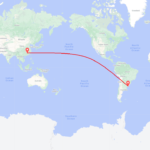








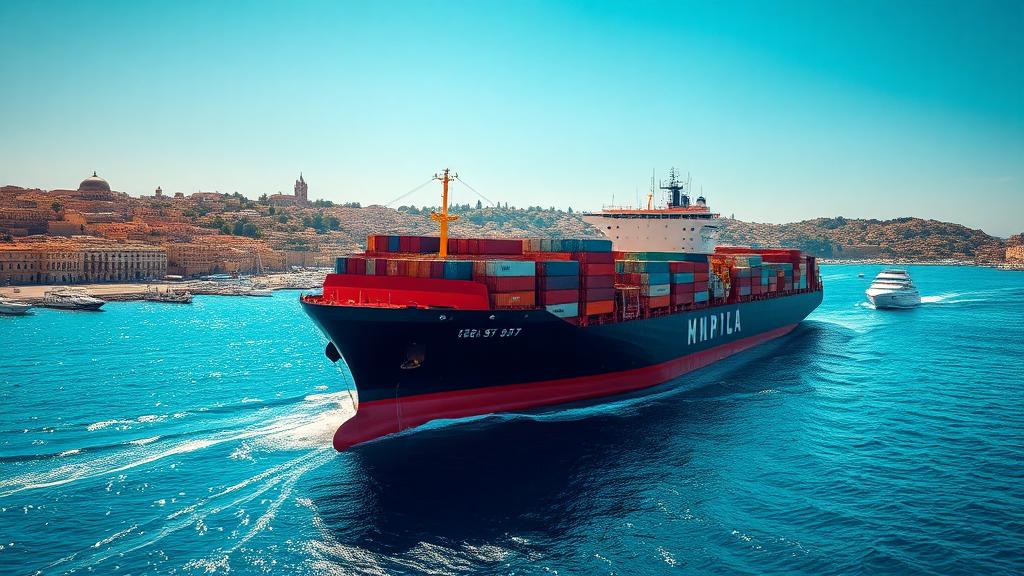
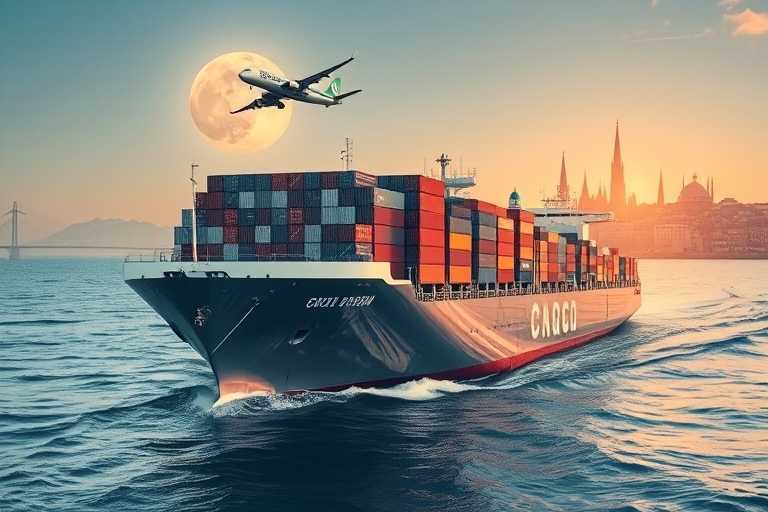
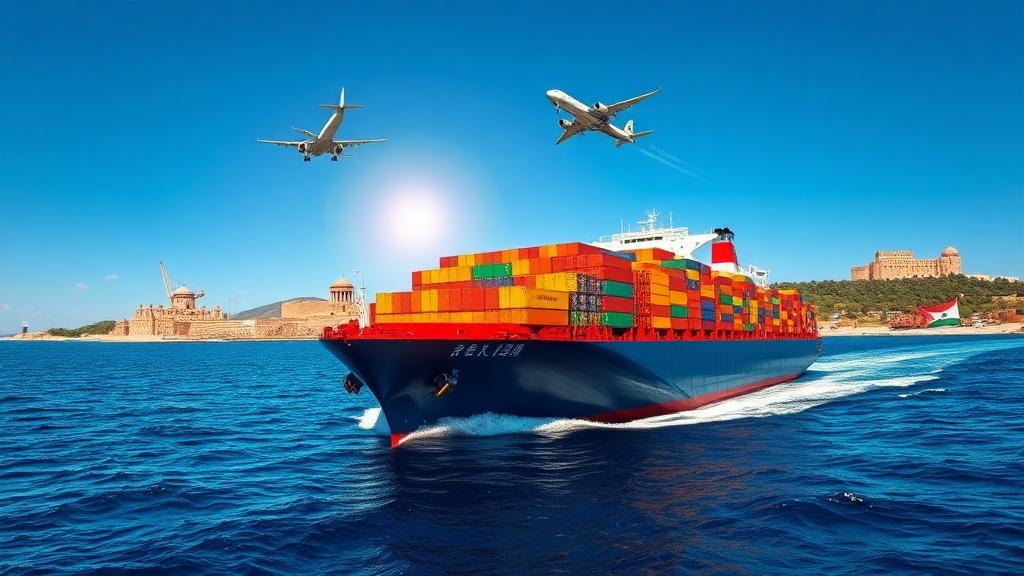
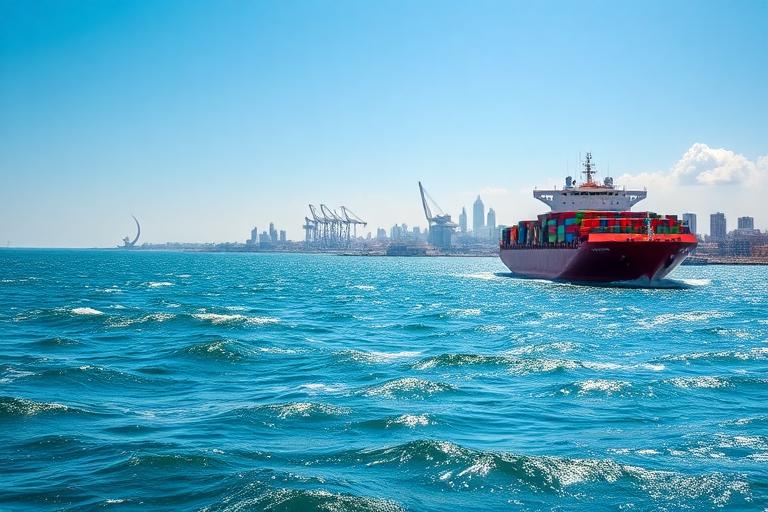
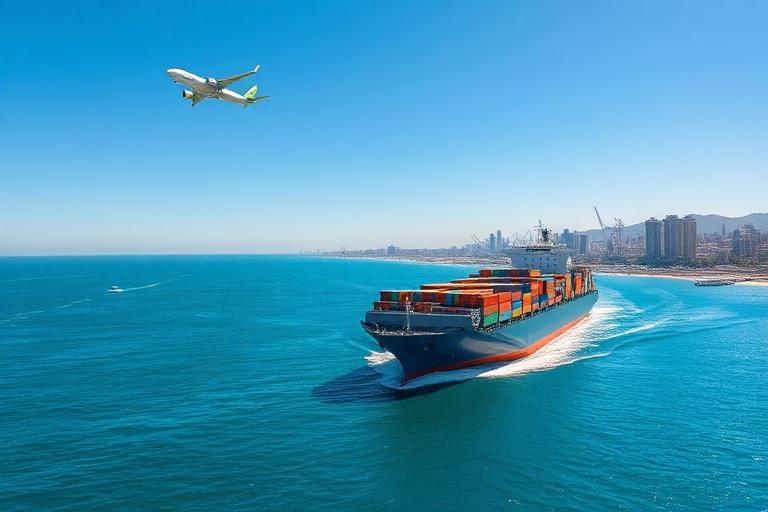





 Afrikaans
Afrikaans Shqip
Shqip አማርኛ
አማርኛ العربية
العربية Հայերեն
Հայերեն Azərbaycan dili
Azərbaycan dili Euskara
Euskara Беларуская мова
Беларуская мова বাংলা
বাংলা Bosanski
Bosanski Български
Български Català
Català Cebuano
Cebuano Chichewa
Chichewa 简体中文
简体中文 繁體中文
繁體中文 Corsu
Corsu Hrvatski
Hrvatski Čeština
Čeština Dansk
Dansk Nederlands
Nederlands English
English Esperanto
Esperanto Eesti
Eesti Filipino
Filipino Suomi
Suomi Français
Français Galego
Galego ქართული
ქართული Deutsch
Deutsch Ελληνικά
Ελληνικά Kreyol ayisyen
Kreyol ayisyen Harshen Hausa
Harshen Hausa Ōlelo Hawaiʻi
Ōlelo Hawaiʻi עִבְרִית
עִבְרִית हिन्दी
हिन्दी Hmong
Hmong Magyar
Magyar Íslenska
Íslenska Igbo
Igbo Bahasa Indonesia
Bahasa Indonesia Gaeilge
Gaeilge Italiano
Italiano 日本語
日本語 Basa Jawa
Basa Jawa ಕನ್ನಡ
ಕನ್ನಡ Қазақ тілі
Қазақ тілі ភាសាខ្មែរ
ភាសាខ្មែរ 한국어
한국어 كوردی
كوردی Кыргызча
Кыргызча ພາສາລາວ
ພາສາລາວ Latin
Latin Latviešu valoda
Latviešu valoda Lietuvių kalba
Lietuvių kalba Lëtzebuergesch
Lëtzebuergesch Македонски јазик
Македонски јазик Malagasy
Malagasy Bahasa Melayu
Bahasa Melayu മലയാളം
മലയാളം Maltese
Maltese Te Reo Māori
Te Reo Māori मराठी
मराठी Монгол
Монгол ဗမာစာ
ဗမာစာ नेपाली
नेपाली Norsk bokmål
Norsk bokmål پښتو
پښتو فارسی
فارسی Polski
Polski Português
Português ਪੰਜਾਬੀ
ਪੰਜਾਬੀ Română
Română Русский
Русский Samoan
Samoan Gàidhlig
Gàidhlig Српски језик
Српски језик Sesotho
Sesotho Shona
Shona سنڌي
سنڌي සිංහල
සිංහල Slovenčina
Slovenčina Slovenščina
Slovenščina Afsoomaali
Afsoomaali Español
Español Basa Sunda
Basa Sunda Kiswahili
Kiswahili Svenska
Svenska Тоҷикӣ
Тоҷикӣ தமிழ்
தமிழ் తెలుగు
తెలుగు ไทย
ไทย Türkçe
Türkçe Українська
Українська اردو
اردو O‘zbekcha
O‘zbekcha Tiếng Việt
Tiếng Việt Cymraeg
Cymraeg יידיש
יידיש Yorùbá
Yorùbá Zulu
Zulu